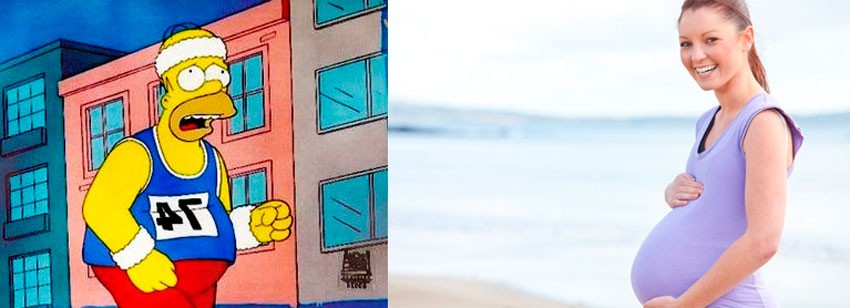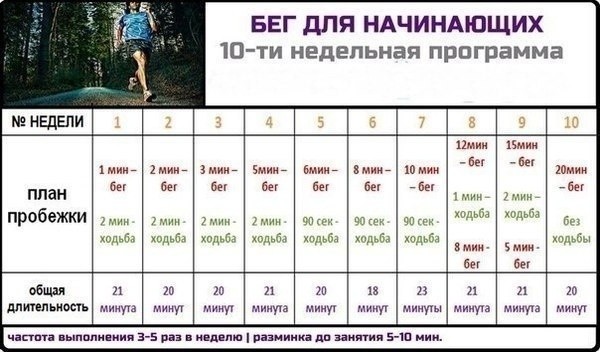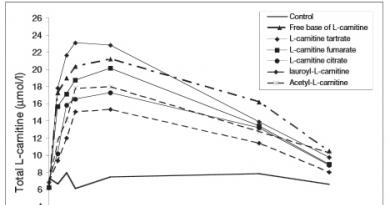Running is considered one of the most effective ways to lose extra pounds. The load received during jogging is distributed evenly across all muscle groups, heartbeat and breathing become more frequent, metabolic processes begin to proceed more actively and faster, and fat is burned. It's not just weight that's lost. The runner's legs acquire relief, the body becomes graceful, but not pumped up.
Desire and daily jogging are not enough. You can run in the mornings and in the evenings, but not achieve any visible results. The main thing is not just to run, but to do it according to a certain method.
This type of activity:
- comprehensively strengthens the muscles of the body;
- enriches the blood with oxygen;
- increases the vital capacity of lung tissue;
- strengthens the heart muscle and blood vessels;
- increases bone strength and endurance.
The multifaceted impact has a beneficial effect on both well-being and health.

When daily jogging for 15 to 20 minutes does not lead to fat burning, a person becomes frustrated and simply stops exercising. To prevent a similar fate from befalling a beginner, it is necessary to clearly understand that such a training scheme is ineffective. This is due to the physiological characteristics of the human body, which cannot be “outwitted”.
Jogging, which is characterized by low speed, requires the expenditure of a certain amount of energy. It is taken from glycogen - sugar stored in the liver for an “emergency” case, that is, when additional stress is placed on the body. Its resource is enough to provide from 30 to 40 minutes of vigorous activity and muscle replenishment.
A short session results in glycogen being only partially consumed and then replenished with food intake. And since glycogen is not fully produced, fat is not used as an energy source. Consequently, fat burning does not occur and weight does not decrease.
How to run to lose weight
The use of fat as a source of energy usually occurs during blood flow and an increase in oxygen concentration in the area of fat deposits. This process is accompanied by heavy breathing and a feeling of fatigue.
And in order to achieve fat burning when running, the duration of jogging should be at least 50 minutes. This will allow your metabolism to switch from glycogen to fats. Running for more than 95 minutes is also not recommended. Refractory fats break down quite slowly. And if the loads are longer, there may not be enough energy, and it will begin to be replenished from proteins, leading to the loss of not only fat, but also muscle mass.

An alternative to long workouts, if you can’t run for an hour at a time, is interval running. It is suitable for those who do not smoke and do not have problems with the cardiovascular system. This is due to the nature of the training. They are accompanied by enormous stress on the blood vessels and heart muscle. However, by doing interval running, you can achieve amazing results.
The essence of interval running is to alternate periods of maximum effort with rest intervals. The recommended interval distance is one hundred meters:
- the first intervals are spent with an active step to stretch the ligaments and muscles, increasing blood flow;
- the second interval is jogged, adjusting breathing;
- For the third interval, they sprint with maximum effort, that is, at the highest speed pace, and then switch to a jog again.
When breathing has been restored at an easy pace, they begin to sprint again. The entire workout after the warm-up consists of alternating light and intense running.
The benefits of interval running
A hundred-meter sprint run is accompanied by special physiological processes, due to which the number of calories burned is simply enormous. A hundred-meter sprint completely breaks down glycogen in the liver, and the subsequent transition to a lower speed restores its reserves by breaking down fat deposits.
Sprinting not only actively consumes glycogen, but also increases blood flow to the muscles, which accompanies intense oxidation of fats with the simultaneous release of energy, which begins to be stored in the form of carbohydrates. Interval running for 20-30 minutes exhausts the runner completely, and fat continues to be burned.
According to some data, after high-speed running, fat burning continues for about 6 hours. In this case, muscle mass is not affected.

The benefits of running are invaluable for the body and figure, but there are certain medical indicators that cannot be neglected.
Running is contraindicated if you have spinal diseases, injuries, acute illnesses, or varicose veins. If these recommendations are neglected, after jogging the patient’s condition may worsen significantly and the disease may worsen.
Women should avoid jogging during pregnancy. Sprinting is completely contraindicated during lactation. During intense exercise, lactic acid is released into the milk. It can make the milk taste unpleasant to the baby.
Best place to run
You should not run near major highways and enterprises, the air around which is saturated with chemical emissions. Asphalt pavement is also not the best option. It is quite traumatic and causes severe fatigue. It is best to run on a special stadium surface. If this is not possible, then along the dirt paths of the forest and park.

The first two weeks of training should focus on increasing your duration and speed. This period is suitable for testing different methods in order to choose the best one for yourself.
Clothing and shoes should be comfortable and suitable for running. If your legs are uncomfortable, this will add stress to the leg muscles and cause unnecessary fatigue.
You need to breathe through your nose. Mouth breathing dries out the throat and makes you thirsty. You can drink while jogging, but in small sips and often, only special drinks or still water.
You need to run only in a good mood, and to maintain the pace and mood - to rhythmic music. Training through force and in a bad mood will not bring any effect.



